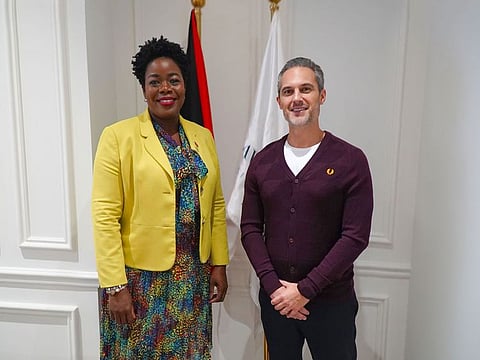Limited time to apply for the Caribbean citizenship by investment programmes
The June 30 deadline opens a limited window of opportunity for investors

The Caribbean islands have been an attractive option for investors seeking a second citizenship and its benefits. Despite upcoming changes to these sought-after citizenship by investment programmes, Jeremy Savory, CEO and Founder of Savory & Partners, one of the world’s leading Residency and Citizenship by Investment firms, believes that demand will remain strong.
With the US and EU urging Caribbean nations to strengthen their protocols, how do these measures benefit their economies and investors?
The six principles strongly recommended to enhance protocols to create more robust programmes were long overdue measures, including annual audits of the units and preventing clients from switching programmes.
The price hike is a good thing. In the short term, it will create a lot of demand before the deadline, which may cause delays. But once the prices have increased and the backlog clears, the applications—now almost historically slow—will start to speed up. The adjustment will double the revenue with less volume, resulting in a more efficient system.
Will the price increase significantly impact the future of the Caribbean CBI programmes?
The most crucial factor is that the price war—characterised by countries undercutting each other to attract investors—will end. It created a race to the bottom, eroding the perceived value of Caribbean citizenship. With the new MoA in place, this era of competition based purely on price is ending. Meanwhile, jurisdictions like Turkey, Malta, and Vanuatu do not offer comparable products in terms of price or benefits.
From July, the distinguishing factors among the Caribbean countries will likely be the number of countries with visa-free access, consular services worldwide, or minor price variations depending on family size.
If people understand that implementing these protocols protects the value of what they’re investing in, they will be okay with paying double the price.
How do the increased Caribbean citizenship prices affect the broader residency market?
There will be a knock-on effect because the EU has also increased its prices, starting with Portugal last year and Greece, which announced a hike before the end of 2024.
With property investment options over $400,000 in the Caribbean, I’d say you’re right next to the EU and Turkey programmes in terms of real estate. A permanent residency visa in Hungary for €250,000 in an investment fund will be as attractive to some investors as the Caribbean donation programmes. Now, even an €250,000 investment in Portugal Golden Visa does not look so expensive with the gap between EU and Caribbean options closing. Many people would prefer the price to be low, but everyone is broadly recognising that a price increase is needed for the long-term integrity and durability of these programmes.
Maintaining a high-quality product with access to the UK and the EU is most beneficial, so one needs to be pragmatic.
How does this affect people’s attitude towards global mobility?
Let’s not forget, the ability to hold multiple citizenships offers advantages beyond global mobility. In reality, it has more to do with sovereignty as a rising number of people are seeking to assert more control over their personal and professional lives.
At the same time, post-Covid we are experiencing a more interconnected world where living and working from anywhere has become increasingly popular. To cater to this, programmes such as tax residency, start-up visas, and talent-based as opposed to wealth-based programmes are emerging. Countries are continually working towards expanding these options as people look for solutions to a less territorial lifestyle.
As the demand for self-sovereignty grows, the Caribbean nations’ decision to harmonise their CBI investment thresholds marks a significant step towards a more robust and sustainable investment environment.



